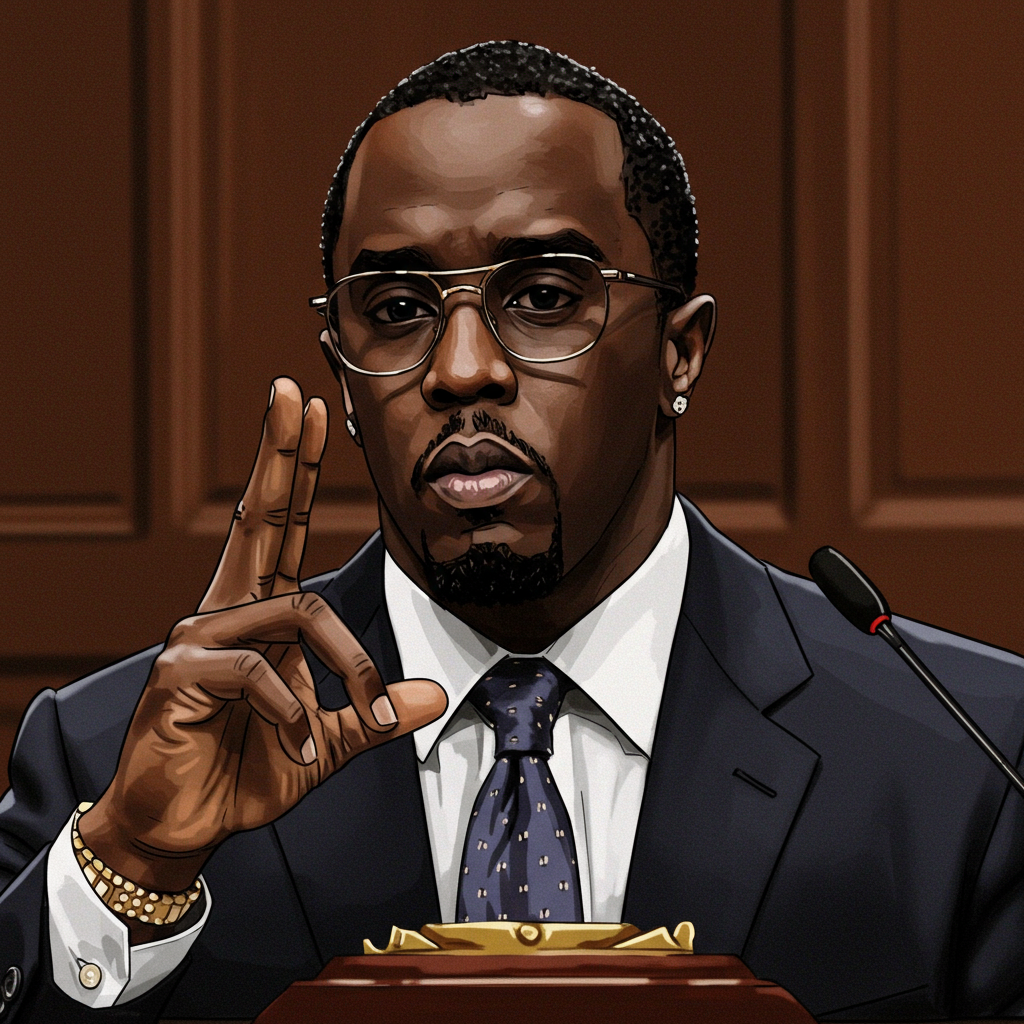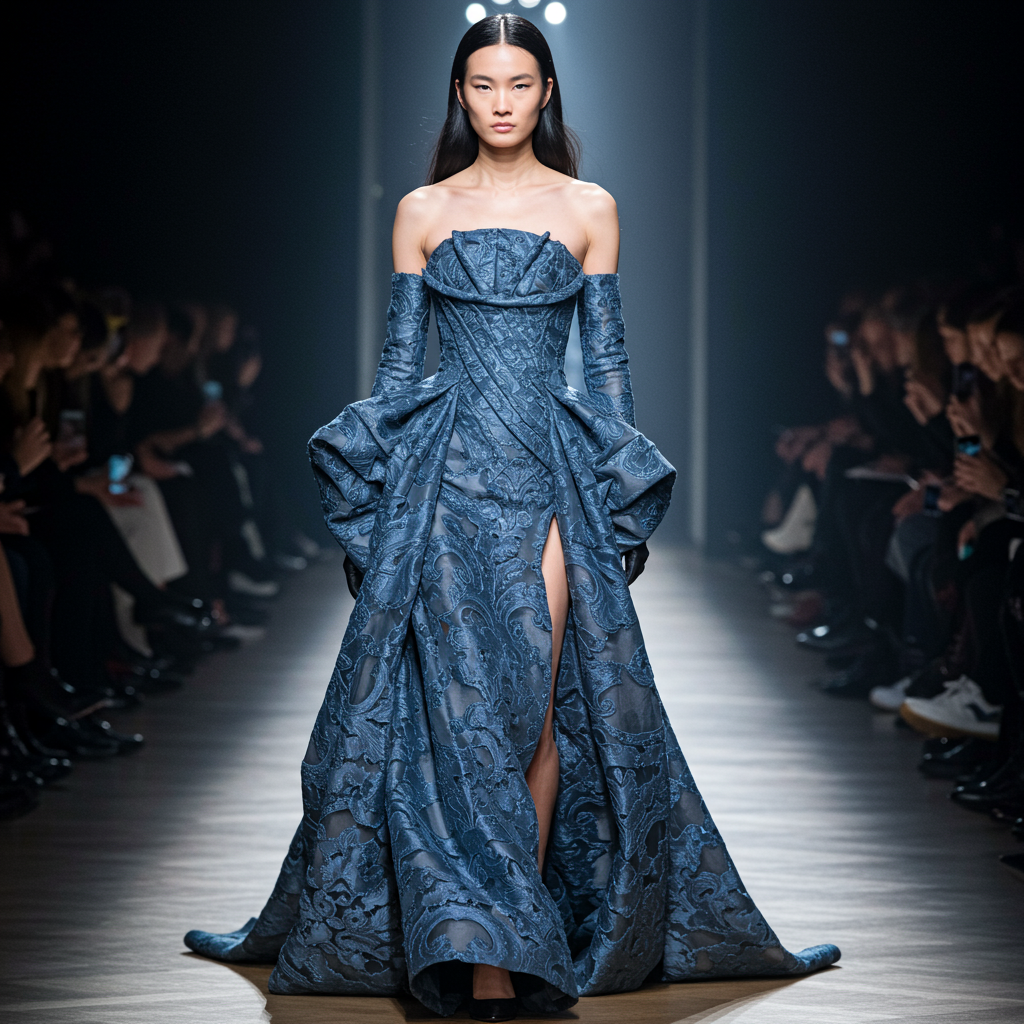In a dramatic turn during the closing arguments of the high-profile federal trial against Sean “Diddy” combs, defense attorneys painted a starkly different picture of his life than that presented by prosecutors. The defense contended that the allegations of sex trafficking and a vast criminal enterprise were a mischaracterization of a complex, consensual private life, dismissing claims of forced sex parties and coercion as wildly exaggerated.
Defense Frames Relationships as Consensual “Love Stories”
Lead defense attorney Marc Agnifilo argued vehemently that the relationships at the heart of the case, particularly with longtime girlfriend Cassie ventura, were not exploitative but rather deeply connected. He characterized their bond as “one of the great modern love stories,” acknowledging its turbulent aspects but insisting that love, not manipulation, defined it. Defense lawyers highlighted text messages between Combs and Ventura, claiming they demonstrated genuine affection and mutual engagement. According to the defense, these communications revealed “some of the most beautiful things ever said” and were central pieces of evidence proving authentic love.
This narrative directly countered the prosecution’s portrayal of Combs using violence, drugs, and threats to control women, including Ventura, and coerce them into sex acts with male escorts or participating in multi-day sex parties referred to as “freak offs” or “hotel nights.” Prosecutors argued Combs “love-bombed” women before pressuring them into these activities.
Mocking Evidence and Alleging Unfair Targeting
During a four-hour summation that followed the prosecution’s nearly five-hour closing statement, Agnifilo openly ridiculed the government’s case at several points. He suggested Combs was unfairly singled out by law enforcement simply for his private sexual activities. Referencing the recovery of hundreds of bottles of lubricants from Combs’ home during a search, Agnifilo sarcastically remarked, “Thank goodness for the special response team. They found the baby oil. They found the AstroGlide.” He proclaimed, “The only crime scene is your private sex life,” implying the government had turned personal preference into criminal activity.
While conceding that Combs may have engaged in domestic violence or threatened to release sex tapes, the defense attorney maintained these issues, while serious, did not amount to the specific federal charges Combs faces: racketeering conspiracy, sex trafficking, and transportation to engage in prostitution. The defense has consistently argued throughout the trial that all sexual encounters were consensual.
Challenging Victim Credibility and Motivation
A significant portion of the defense’s closing arguments focused on undermining the credibility of the three key alleged victims who testified: Cassie Ventura, “Jane,” and “Mia” (a former assistant). Agnifilo asserted they were primarily motivated by financial gain and that prosecutors had “exaggerated” their claims.
Regarding Cassie Ventura, the defense sought to portray her as a woman who was sexually confident and actively participated in the activities described, rather than a victim of trafficking. Agnifilo referenced her post-Combs relationship with actor Michael B. Jordan, suggesting it demonstrated her “high level” and “sexual confidence.” Previously in the trial, contradictory text messages presented included one from Cassie saying Combs made her feel like a “hooker,” while another indicated she was “into” “freak-offs.” The defense also notably portrayed Cassie as a “gangster” who “played” Combs, citing her use of a “burner” phone to contact rapper Kid Cudi years prior as evidence of her manipulative nature, a stark contrast to the victim narrative.
Similarly, the defense argued that “Jane,” a former romantic companion who testified extensively about feeling coerced through financial leverage, including Combs paying her $10,000 monthly rent, was not a trafficking victim. They contended she agreed to the sexual activity with male prostitutes, and any regret came later. The defense characterized the payment of Jane’s rent not as leverage, but as a simple “gesture of kindness, of decency, of niceness.” Jane’s prior testimony detailed numerous instances where she claimed Combs used financial control and leveraged the rent payment, alongside other expenditures like paying for her veneers, to compel her participation in “hotel nights” involving escorts, often against her stated discomfort or physical pain from frequent UTIs and soreness.
Concerning “Mia’s” allegations of sexual assault and rape, the defense argued the encounters were voluntary, pointing to an effusive birthday message she sent Combs to suggest a romantic dynamic existed between them beyond a professional one. Mia had testified earlier in the trial about her employment history, noting she had previously worked for figures like actor Mike Myers and fashion designer Georgina Chapman before her tenure with Combs from 2009 to 2017.
Dismantling Racketeering Predicate Acts
The defense also systematically attempted to discredit the specific underlying criminal acts prosecutors alleged were part of Combs’ purported racketeering enterprise. Agnifilo derided the notion that Combs’ actions constituted a criminal organization, dramatically asking, “Are you kidding me? Are you kidding me?” He claimed that if racketeering conspiracy had an opposite, it would be Combs and Ventura’s relationship.
Addressing the allegation that Combs orchestrated the 2011 firebombing of rapper Kid Cudi’s car after learning he was seeing Ventura, Agnifilo dismissed the claim as “nonsense” and argued there was “no evidence, I mean no evidence,” directly linking Combs to the incident.
Prosecutors had also alleged that Combs attempted to bribe a hotel security guard for footage of a 2016 attack on Ventura, concerned about being arrested. The defense offered a different motive: Combs’ distrust of hotel staff. Agnifilo suggested hotel staff were more likely seeking a “payday” for footage of a famous person like Combs, rather than being concerned about police involvement.
Regarding the claim that former assistant Capricorn Clark was kidnapped when allegedly forced into a five-day lie detector test after jewelry went missing, Agnifilo countered, “She went home. Everyday.” He argued that while Clark may have been unsettled, she was not kidnapped. Clark had also testified earlier in the trial about her experience working for Combs, including encountering figures like Nas and Kelis with him in Central Park and contrasting Cassie’s singing talent with that of Whitney Houston or Mariah Carey.
Prosecution Rebuttal: Emphasizing Coercion and Reality
Following the defense’s closing, prosecutor Maurene Comey delivered a sharp rebuttal. She directly challenged the defense’s insinuation that the alleged victims “wanted” to participate in the sex sessions. Comey described the reality of the “dark hotel room, awake for days, covered in oil, often with a [urinary tract infection], in heels, with your pelvic area sore…having sex for hours, including with strangers,” and called the defense’s suggestion that Ventura and Jane desired this “ridiculous on its face.”
Comey stressed to the jury that to convict Combs of sex trafficking, they only needed to find one instance of a “freak-off” where Combs knew he was using force, fraud, or coercion to compel Ventura or Jane’s compliance. She concluded by stating her belief that Combs thought the women he allegedly abused would never have the courage to speak out and that he had “gotten away with his crimes” for 20 years, asserting, “That ends in this courtroom.”
The trial has spanned weeks, with over 30 witnesses testifying, including former partners and employees detailing Combs’ sex life and alleged behavior. Earlier in the trial, Diddy’s son, King Combs, released a song with Kanye West titled “Diddy Free” explicitly supporting his father.
With closing arguments concluded, the jury of eight men and four women are set to begin deliberating Combs’ fate. The judge will first instruct them on the charges and how to apply the law to the extensive testimony and evidence presented since the trial commenced in mid-May. Combs faces a potential life sentence if convicted on all counts. He has pleaded not guilty to all charges.
Frequently Asked Questions
What was the core defense argument in Diddy’s trial closing?
The defense team argued that the relationships described by the prosecution, particularly Sean Combs’ relationship with Cassie Ventura, were consensual and based on love, despite acknowledging elements of domestic issues or infidelity. They characterized the lifestyle depicted as a “love story” or consensual swingers’ activities, rather than a criminal enterprise involving sex trafficking and coercion.
How did the defense challenge the testimony of alleged victims like ‘Jane’?
The defense attempted to discredit alleged victims by suggesting they were motivated by money and had exaggerated their claims. Specifically regarding “Jane,” the defense argued she consented to the sexual activities described and framed financial support from Combs, such as paying her $10,000 monthly rent, as kindness rather than leverage used for coercion, contrary to Jane’s own extensive testimony about financial manipulation.
What did the prosecution emphasize in their rebuttal regarding the sex trafficking charges?
In rebuttal, the prosecution forcefully pushed back against the defense’s claims of consent. Prosecutor Maurene Comey described the alleged sex sessions in graphic detail, highlighting the physical and emotional toll on the women. She stated that for a sex trafficking conviction, the jury only needed to find one instance where Combs knowingly used force, fraud, or coercion to obtain compliance.



